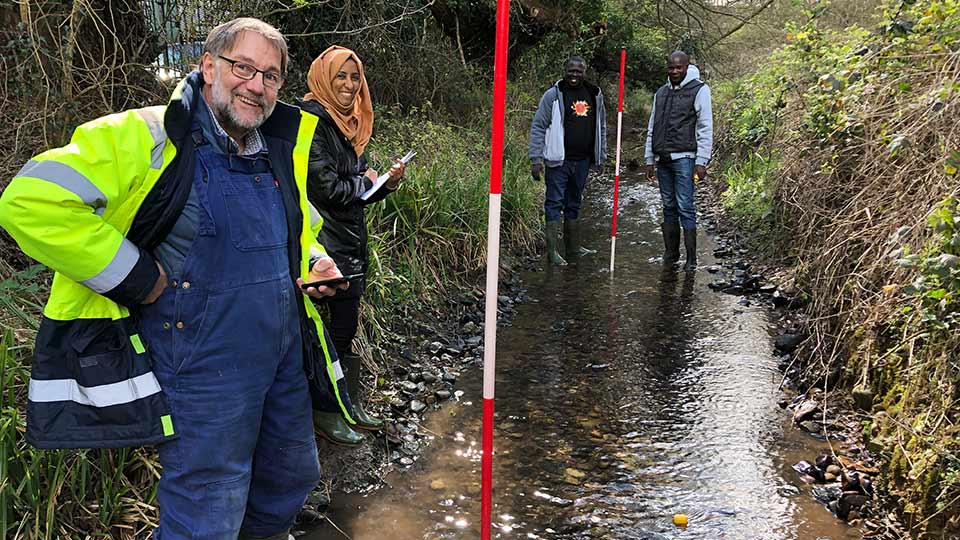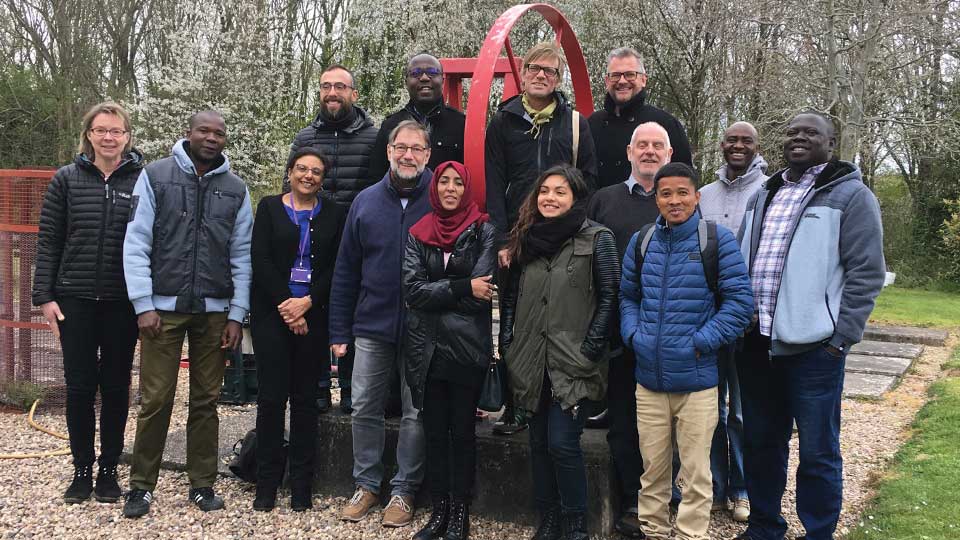Staff from MSF – the world’s leading humanitarian medical non-governmental organisation, also known as Doctors Without Borders – travelled to campus from Bangladesh, Kenya, Uganda, Malawi, Yemen, France, Italy, Switzerland and Germany for training earlier this month.
The group visited the Water Engineering and Development Centre (WEDC) to learn how to identify, plan, implement and monitor water supply, hygiene and sanitation interventions that are required for the charity’s healthcare projects around the world.
The two-week course consisted of presentations, discussions and practical work which saw attendees assess water quality using specialist kits, work and repair different types of pumps, measure water flow and more.
The training aimed to strengthen the knowledge and skills of MSF’s key water, sanitation and logistics staff, who typically have to work in high pressured, emergency situations.

The course saw the MSF team undertake a variety of practical work.
Course Director Dr Lee Bosher, of the School of Architecture, Building and Civil Engineering, said: “We are delighted that MSF value the work of WEDC and the professional development of their fieldworkers by investing in this important training course.
“The training provided by WEDC helps MSF to improve the effectiveness of their responses to emergencies and disease outbreaks such as cholera, Ebola and malaria in some of the world’s most challenging humanitarian crises.”
As part of the visit, MSF facilitators also delivered sessions to Loughborough staff and students that looked at MSF in communities, the health structures the charity supports and new approaches in the organisation to water and sanitation related issues.
MSF has a long-standing partnership with the WEDC, which has been delivering the ‘Water, Hygiene and Sanitation for Health’ course for more than 25 years.
In the last 10 years, WEDC has trained over 250 MSF staff which Dr Bosher says is “testament to how highly valued the course is by the organisation”.
Biserka Pop Stefanija, WatSan (Water and Sanitation) Advisor at Medecins Sans Frontieres, commented: “The combination of training delivered by WEDC and MSF facilitators has shown to be rather educative for our field staff dealing with water and sanitation challenges in the projects they work in. This is based on follow-up of projects and staff performance after the training.
“We’d like to thank Loughborough University for delivering such an informative training course and we look forward to continuing working together in the future.”
For further information about the professional training provided by WEDC, contact Dr Bosher at L.Bosher@Lboro.ac.uk.

